FEATURED STORY Help Mangroves Help the Oceans  Dear Friends As we see the effects of the climate and ecological crises beginning to take hold all around the world, mangroves are becoming more vital than ever. From standing as a living barrier against rising seas and more intense storms, to mitigating the causes of climate change (storing up to five times more carbon per hectare than tropical forests), to keeping the oceans healthy by providing nursery grounds and habitats to many marine species and filtering sediments that would otherwise wind up on coral reefs and seagrass beds, mangroves are increasingly imperative to securing our planet’s habitable future.
Mangrove Action Project is actively working across the globe to help conserve and restore our world’s mangrove forests, in partnership with groups ranging from coastal communities to governments, academics, and international NGOs. And this year, MAP has joined with the UN Decade on Ecosystem Restoration in an effort to build a sustainable and healthy future for all. This World Mangrove Day, we are asking for your help to save and restore these vital ecosystems and protect our coastlines, communities and wildlife. By donating to MAP, you are helping to: · Work with coastal communities to bring back and keep their
forests and safeguard their livelihoods
· Assist regional, national, and international groups working on
mangrove restoration to make their efforts more effective,
sustainable, and biodiverse
· Educate on and spread awareness of the importance of mangrove
forests around the world.
MAP is only able to do this work because of our network of support. Thank you for your help, and for spreading the word about mangroves. Please pass on this message, and if you would like to find out more about mangroves and MAP’s efforts, visit our website at www.mangroveactionproject.org.  The Mangroove Song This catchy song was created by The Mangrooves, a group of environmental educators at the Bahamas Reef Environment Educational Foundation’s annual teacher training.  GLOBAL Support mangrove conservation, UNESCO chief says GLOBAL Support mangrove conservation, UNESCO chief says  GLOBAL – Audrey Azoulay, Director General of the UN Educational, Scientific and Cultural Organization (UNESCO), made the appeal in her message for the International Day for the Conservation of the Mangrove Ecosystem, observed on 26 July. Mangroves are found in tropical and sub-tropical regions, on the boundary between land and sea. Globally, they cover a surface of just 14.8 million hectares, or roughly equivalent to the size of Greece. “They protect biodiversity by sheltering and nurturing marine life. They function like filtration systems, absorbing nutrients and pollutants. They fight coastal erosion, acting as breakwaters to dissipate storm surges and wave energy. Above all, they play an essential role as carbon sinks, sequestering atmospheric and oceanic carbon for long periods of time,” said Ms. Azoulay. Yet despite these benefits, UNESCO estimated that some countries lost more than 40 per cent of their mangroves between 1980 and 2005, often due to coastal development. READ MORE Many mangrove restorations fail. Is there a better way?  GLOBAL – If any single event was a watershed for conservation of the world’s mangrove forests, it was the Indian Ocean tsunami of 2004. In several affected countries, nonprofits and government agencies swiftly began planting mangrove seedlings; in Sri Lanka, plantings were made at more than 20 sites around the island’s rim. But when University of Ruhuna botanist Sunanda Kodikara visited those sites between 2012 and 2014, he was shocked to find mangroves regrowing on only about 20 percent of the area planted. Elsewhere, just a few saplings persevered, or none at all. “I saw so many dead plants,” Kodikara recalls. Especially disheartening, he says, was the fact that some $13 million had been spent on the efforts. Such results are particularly frustrating to experts, as the need for protecting and restoring the world’s “blue forests” is greater than ever. READ MORE AFRICA Mdimni Village Replanting mangroves World Mangrove Day 2021  In celebration of World Mangrove Day on 26 July. We visited Mdimni Village on the banks of the Rufiji River surrounded by mangroves. We celebrated this day in practice in collaboration with these villagers, and we also provided mangrove conservation education including mangrove planting. We spoke to conservation groups in the village and urged them to continue caring for mangroves. And moreover we used the opportunity to point out the importance of mangroves to the environment they live in and the world at large. I offer my sincere thanks to all who supported me in making this a success. READ MORE Tell the banks not to finance the East African Crude Oil Pipeline
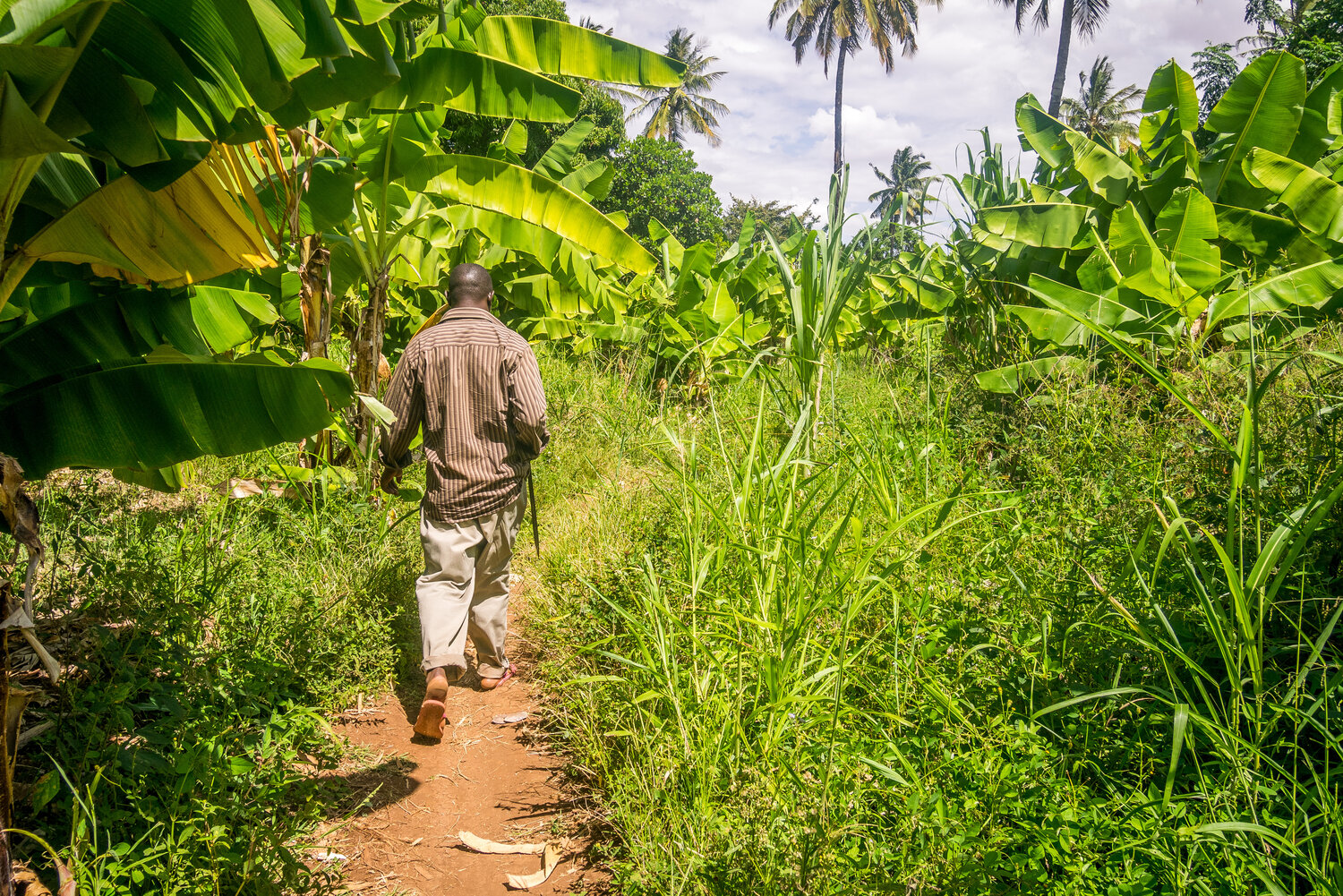
EAST AFRICA – French oil giant Total and the China National Offshore Oil Corporation are on the cusp of building a massive crude oil pipeline right through the heart of Africa – displacing communities, endangering wildlife and tipping the world closer to full-blown climate catastrophe. The future of East Africa relies on building sustainable, diversified and inclusive economies – not by letting huge multinational corporations extract resources and keep the profit. The East African Crude Oil Pipeline needs to be stopped and there is a plan to do exactly that. Are you in? READ MORE
The fisherwomen, Chevron and the leaking pipe

NIGERIA – Oil companies like Chevron, Shell and Eni have made billions in profits in the vast Niger Delta region in the last decades. But now some are pulling out — and they are leaving utter ruin in their wake, according to government monitors and environmental and human rights organizations. The delicate ecosystem of the Niger Delta, once teeming with plant and animal life, is today one of the most polluted places on the planet. It is the women, who do most of the fishing in the creeks and marshes in this part of the Niger Delta, who are trying to call the oil companies to account. When they found the ominous bubbling, the fisherwomen alerted local leaders, who informed Chevron’s Nigerian subsidiary. At first, Chevron ignored them, the local leaders said, and oil continued to flow through the line. READ MORE
ASIA
International Day for the Conservation of the Mangrove Ecosystem: Not just a lifeline for coastal communities

INDIA – Mangroves have become highly susceptible to industrial areas along coasts and pollution caused by domestic and industrial sewage. According to UNESCO, mangroves are disappearing at a rate that is three to five times faster than overall losses of global forest cover in the face of infrastructure development, urbanisation and agricultural land conversion. According to its current estimates, mangrove coverage has shrunk by half in the last 40 years. Less than 1% of tropical forests are mangroves, such is its rarity, according to UNESCO. undarbans apart, India is home to several other swathes of mangrove cover, including the Godavari-Krishna Mangroves, Bhitarkanika Mangrove Wetland, Baratang Island in the Andaman and Nicobar Islands, and the Pichavaram Mangrove Forest in Chidambaram. During the 2004 Indian Ocean tsunami, the Pichavaram Mangrove Forest protected several hamlets in Tamil Nadu, by preventing the seawater from entering the villages and minimising loss of property. Rows of mangroves near the sea reduced the impact of the tsunami by reducing the velocity and volume of the tsunami water. READ MORE
Mangroves Mitigate Effects of Climate Change Provide Local Economic Benefits

PHILIPPINES – Jurgenne Primavera, a marine scientist and 2005 Pew marine fellow from the Philippines, has spent decades collaborating with local governments and communities to study, restore, protect, and champion mangroves in the Philippines and beyond. “In the Philippines, when my team and I would go to a potential mangrove project site, we would first go to the mayor and local community leaders, because we knew that for mangrove protection to succeed, we would need local support. The local community members are the de facto managers on the ground. And our record over the years, in terms of training and empowering both local communities and local officials to protect remaining mangroves and rehabilitate degraded ones, has been mostly successful,” Primavera said. This interview, timed to mark the International Day for the Conservation of the Mangrove Ecosystem on July 26, has been edited for clarity and length. READ MORE
Mangrove Conservation and Restoration: Protecting Indonesia’s “Climate Guardians”
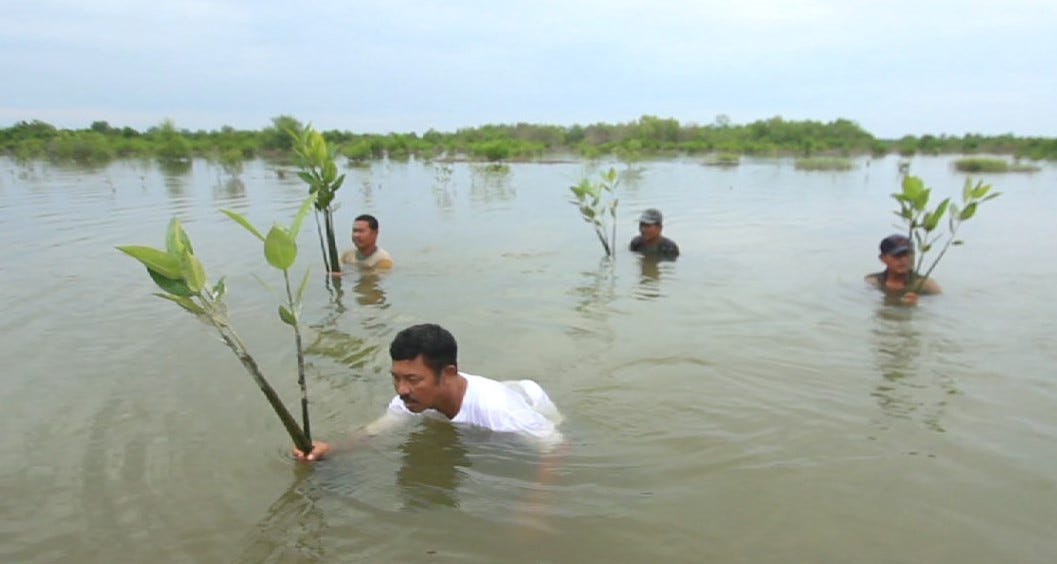
INDONESIA – ‘In 2007, my father asked people to join him to plant mangroves, but only a few were interested. Now, we feel the impact of beach abrasion on our daily lives. The sand began to erode, and many of the islands around Yensawai began to disappear,’ said Konstantinus Saleo, an advocate for nature preservation in West Yensawai, Raja Ampat Islands, located in the eastern part of Indonesia. For people living in coastal areas, like Konstantinus, mangroves are not just mere plants. Mangroves, which grow on the coastline and river mouths, serve as a barrier to seawater abrasion and reduce the risk of floods. They are the guardians of local homes and livelihoods. These ecosystems provide shoreline protection from climate-related and other disasters such as storms and tsunamis and reduce flood-risks, inundation, and erosion. Indonesia’s mangroves also help mitigate the impact of climate change as they store a significant amount of carbon – 3.1 billion tons – equivalent to the greenhouse gas emissions produced by approximately 2.5 billion vehicles driven for one year. READ MORE
AMERICAS
Cayman Mangrove Festival honours islands’ wetlands on World Mangrove Day

CAYMAN ISLANDS – The Mangrove Arts Festival in celebration of World Mangrove Day and World Mangrove Week, took place July 24 in at downtown gallery Parcel 110 on Cardinall Avenue. The free, all-ages event kicked off a week of activities and marked the one-year anniversary of the Mangrove Rangers, a non-profit dedicated to mangrove conservation, restoration and education. Doors opened at 10am with two mangrove-themed art exhibitions on display until 31 July. These shows included a student exhibit with more than 25 participants from schools across the Cayman Islands. Students were invited by the Mangrove Rangers to submit art of any style reflecting the environmental, cultural or economic value of Cayman’s mangrove habitat. View Video
READ MORE
Costa Rica Ensures Future for Its Mangrove Forests

COSTA RICA – Costa Rica recently announced its commitment to restore and protect coastal wetlands—including 22,000 hectares of the country’s mangroves—as part of its updated nationally determined contribution (NDC) to the Paris Agreement. Coastal wetlands, including mangrove forests, are some of the most important ecosystems on the planet. Not only are mangrove forests rich in biodiversity, but they serve as natural buffers to storms and flooding. They also help mitigate climate change by storing an estimated three to five times more carbon in their soil per acre than other tropical forests. This interview with two Costa Rican coastal wetlands experts, to mark International Day for the Conservation of the Mangrove Ecosystem on July 26, has been edited for clarity and length. READ MORE Like this newsletter?
Pease consider donating to MAP to keep it going.
Giving could never be easier  | Stop the East African Pipeline that threatens the planet #STOPEACOP – CLICK HERE CHILDREN’S ART CALENDAR CONTEST Contest NOW OPEN – Enter Now
URGENT ACTION Stop the East African Pipeline that threatens the planet #STOPEACOP – CLICK HERE Stop construction work on a private port In Defense of the Quilombo Boca Do Rio TAKE ACTION! Tell Sumitomo to stop building polluting coal power in Bangladesh! TAKE ACTION! Stop Adaro, Indonesia’s coal giant, from refinance its debt.
TAKE ACTION
Like this newsletter? Pease consider donating to MAP to keep it going. Giving could never be easier
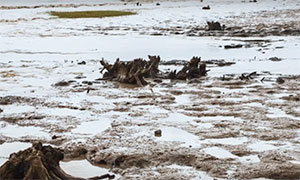
Restoring The Natural Mangrove Forest
Watch movie 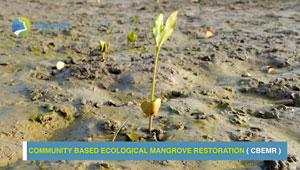
Community Based Ecological Mangrove Restoration in Rufiji Delta VIEW VIDEO Video: Mangroves for the Future – A look bacK. As the latest phase of Mangroves for the Future (MFF) draws to a close, this video highlights some of the project’s most successful initiatives – from local women supporting national park management in Viet Nam to an island in the Maldives that has become a model for waste management, and everything in between. View Here WANT TO GET INVOLVED?
Follow and Join MAP!    
Like this newsletter? Pease consider donating to MAP to keep it going. Giving could never be easier 

Singing for the Sundarbans WATCH HERE Entrevista con Monica Quarto del Mangrove Action Project (Spanish language) Oye Aqui
VOLUNTEER OPPORTUNITY 
MANGROVE ISSUES Want to learn more about mangroves?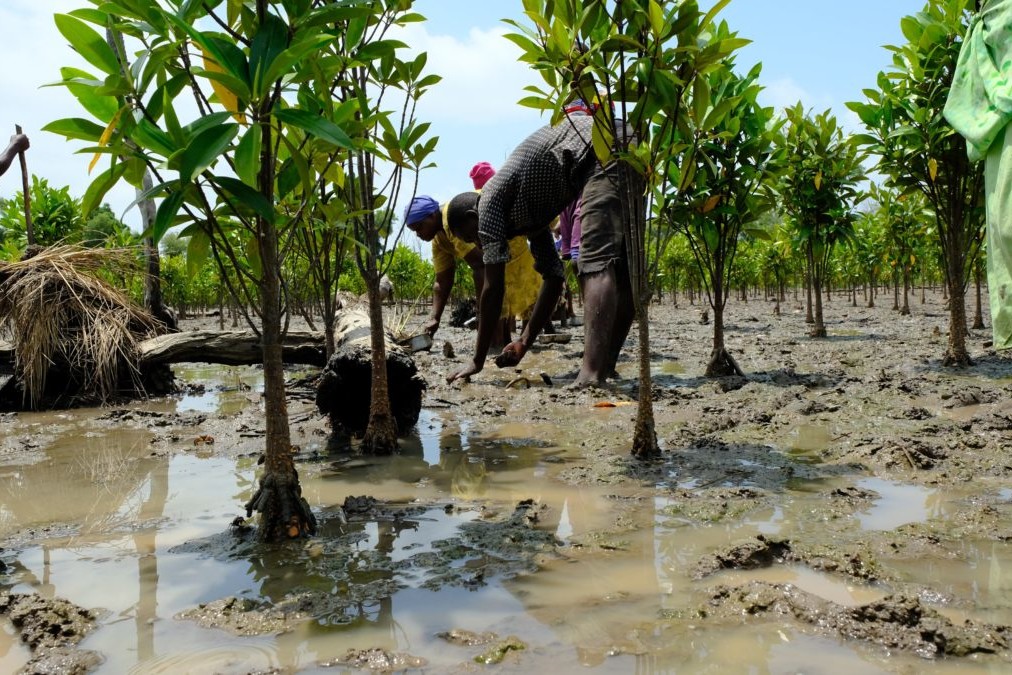
Our short presentation will give you a better understanding of the issues we are working to solve. WATCH PRESENTATION What is CBEMR? Download MAP’s 2 page CBEMR Information Sheet containing links to all MAP’s CBEMR resources – CLICK HERE
View MAP’s uploaded Videos at
MAP Video Gallery Question Your Shrimp Consumer/Markets Campaign!
WATCH VIDEO Mangroves: Guidebook to Malaysia – Click Here SHARE MAP’S VISION
CLICK HERE to watch short introductory video. Together we can work “at the roots of the sea”. Our short documentary, Reducing the Risk of Disaster through Nature-Based Solutions : Mangroves
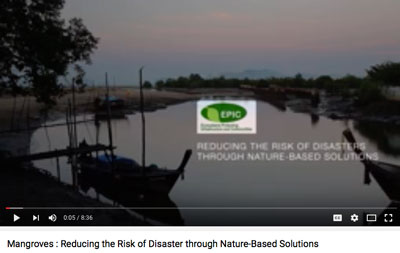
Marvellous Mangroves Curriculum The Marvellous Mangroves Curriculum begins with a simple philosophy – getting future generations to not only learn about, but understand the importance of mangrove forests. VISIT 
The award-winning Marvellous Mangroves (MM) curriculum educates children on the importance of mangroves and their ecological functions, teaching them about modern challenges and mechanisms for sustainability. VIEW VIDEO Marvellous Mangroves Curriculum in Bangladesh – WATCH VIDEO
MARVELLOUS MANGROVES IN BRAZIL
En Portuges 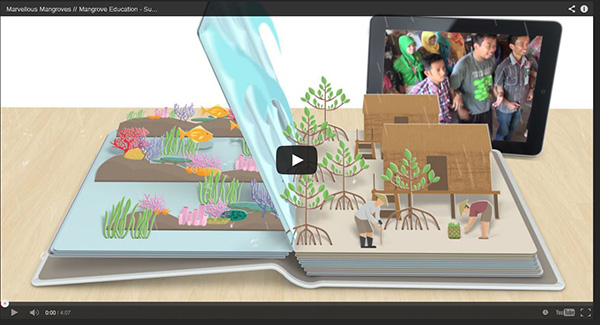
Marvellous Mangroves – A Curriculum-Based Teachers Guide.
Like this newsletter? Pease consider donating to MAP to keep it going. Giving could never be easier 
“Question Your Shrimp” Campaign Question Your Shrimp – is it really sustainable? Sign the Petition
Note to Our Readers: We strive to keep active links in our newsletter. However, due to circumstances beyond our control, occasionally links to stories may become broken. If you find a link to a story is not functioning, please cut and paste the headline into your browser search bar. In most cases you should be able to locate the original story.
Not yet a MAP News subscriber?
Click here to subscribe. 
|



























